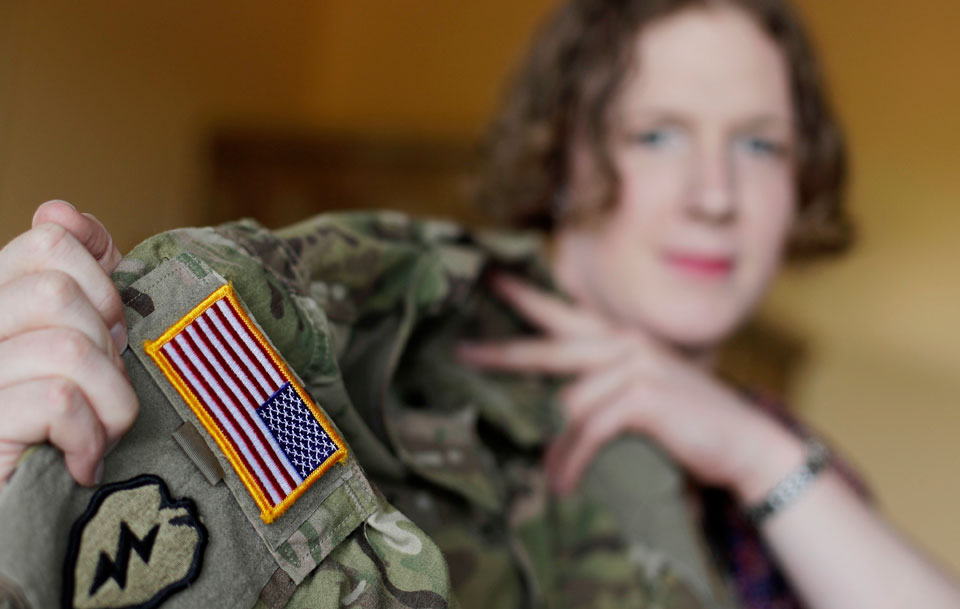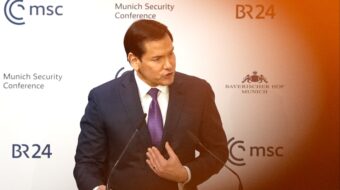
The Supreme Court reversed a 2016 Obama-era policy this week and handed a win to the Trump administration, ruling that transgender Americans could no longer serve openly in the military. The court ruled 5-4 to grant the Trump administration’s request to lift injunctions blocking its termination of trans equality in the military while challenges continue in lower courts.
Although the court’s ruling is not a blanket mandate, it does allow the military to enforce the ban and prohibits “transgender persons who require or have undergone gender transition” from serving. According to administration representatives, there will be exceptions for the several hundred transgender people already serving openly or for enlistees willing to serve “in their biological sex.”
The ruling has sparked intense opposition from trans communities across the nation, including enlisted members who are currently serving. Hours after the announcement was made public, Army Staff Sgt. Patricia King spoke to CNN about how the the ban “gives a false sense of credibility to the inaccurate notion that transgender people are somehow less or less capable than our peers.” King, who has served for 20 years, was only recently able to do so openly as a transgender woman. Herlong-standing commitment to the service is a testament to the fact that transgender people have already already existed within branches of the military for decades, but have had to do so in the shadows.
According to Department of Defense data, there are approximately 8,980 active duty transgender troops. This comes as no surprise to many in the LGBTQ community, as the U.S. military is the top employer of trans people in the nation. This is largely due to the fact that employment discrimination is so prevalent for trans individuals, leaving few options to those who are consistently marginalized in the work environments.
According to a research study conducted by the Williams Institute, both transgender men and women enlist at higher rates than their cisgender counterparts. “Trans people who were “assigned female at birth” (AFAB) are estimated to be nearly three times as likely to serve as the average adult woman, while trans people “assigned male at birth” (AMAB) are 1.6 times as likely to serve as the average man.” Similarly, the United States Department of Veterans Affairs is one of the largest providers of healthcare to trans people in the nation.
The trans community heavily relies on government services and resources for their livelihood. One critical part of the conversation around the transgender military ban, which seems to be absent, however, is the role that capitalism plays in creating this co-dependency. There are economic and political systems in place that make it increasingly difficult for trans individuals to succeed outside of those infrastructures.
Pro-military discourse has increasingly become part of mainstream LGBTQ coverage since the repeal of “Don’t Ask Don’t Tell”—the Clinton-era policy which prohibited openly discussing the sexual orientation of enlisted service members. The narrative constructed around the inclusion of gay/lesbian/trans troops has been part of a strategic push to expand upon military recruitment strategies and has served to further exploit disenfranchised populations.
Trans community organizer Stephanie Skora, a co-founder of the Trans Liberation Collective in Chicago, says the U.S. military preys on the desperation of marginalized communities to further its global imperial reach. “Trans people face systemic under/unemployment and massive denials of healthcare simply for being ourselves; many of us are the very embodiment of desperate. We don’t want to be in the military; we want jobs, healthcare, and basic humanization.”
While Skora doesn’t claim to speak on behalf of all trans individuals, she acknowledges the societal barriers that contribute to large number of trans enlistees in the military. The U.S.’ role in destabilizing foreign governments and military coups, however, has been well documented throughout the years—regardless of who they are recruiting to carry out the task. Often times, the media’s focus on LGBTQ enlistees serves to promote the facade of “diversity and inclusion,” while simultaneously distracting from the casualties of unnecessary wars and conflicts.
Nevertheless, the transgender ban sets an undeniably dangerous precedent for the Trump administration. The decision indicates a clear tip in the scales for the Supreme Court and serves as a projection for the conservative leanings of future court rulings. Trans communities, meanwhile, continue to navigate through the rampant transphobia in the legislative and judicial system—a problem further enflamed by Trump’s empowered followers. “The solution is trans liberation, collective revolution, and the dismantling of cisgender supremacy,” says Skora. “The master’s tools will never dismantle the master’s house.”










